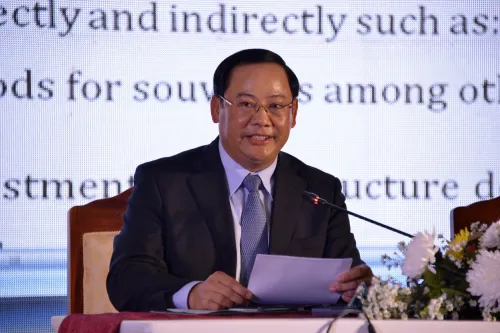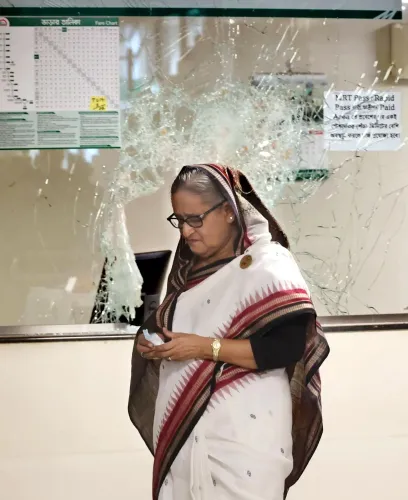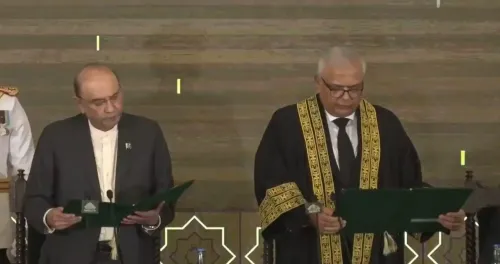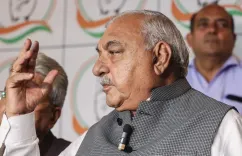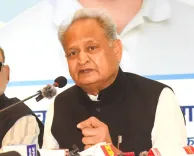How Does G4 Support the Common African Position for UNSC Membership?
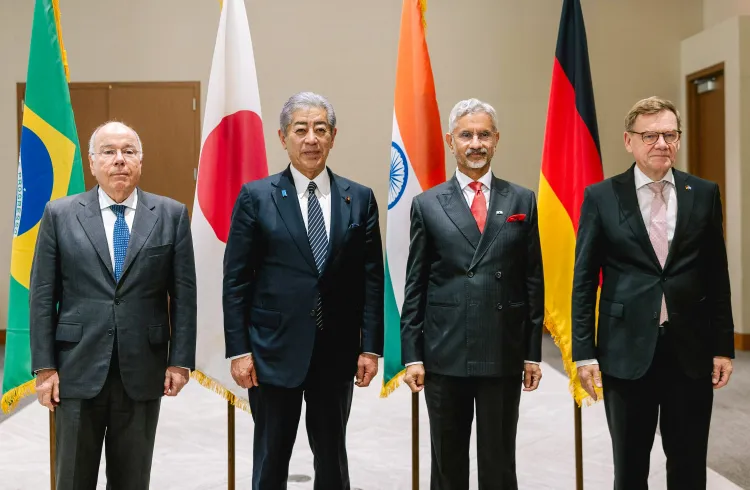
Synopsis
Key Takeaways
- The G4 nations are united in their support for the Common African Position.
- The Ezulwini Consensus calls for two permanent seats for Africa on the UN Security Council.
- Comprehensive UN reform is necessary to improve global governance.
- The G4 emphasizes the importance of representation for underrepresented regions.
- International cooperation is vital for advancing Security Council reform.
New York, Sep 27 (NationPress) The Group of Four (G4) nations have reiterated their robust backing for the Common African Position (CAP), as outlined in the Ezulwini Consensus and the Sirte Declaration.
The Common African Position (CAP) serves as the African Union's (AU) unified strategic framework and collective voice for tackling global issues, advocating for Africa's priorities, and shaping international negotiations.
This position, known as the Ezulwini Consensus, emphasizes Africa's marginalization from the UN's permanent membership, advocating for a minimum of two permanent seats for Africa on the Security Council.
The G4 nations—comprising India, Brazil, Japan, and Germany—reaffirmed their steadfast support for the CAP on September 25 during the UNGA session.
External Affairs Minister (EAM) S. Jaishankar, along with his G4 counterparts—Mauro Vieira from Brazil, Johann Wadephul from Germany, and Iwaya Takeshi from Japan—engaged in discussions to evaluate progress and explore prospects for reforming the UN Security Council.
"A comprehensive overhaul of the Security Council is essential for everyone's benefit. The G4 Ministers reiterated the readiness and capability of the G4 nations, as democracies sharing common political values like respect for the rule of law, unwavering adherence to the UN Charter's purposes and principles, and commitment to multilateralism, to assume the Security Council's primary responsibility for maintaining international peace and security," the G4 joint statement expressed.
They also reaffirmed their mutual support for each other's aspirations for permanent membership in a reformed United Nations (UN) Security Council during a meeting on the sidelines of the 80th Session of the UN General Assembly in New York.
The G4 Ministerial joint statement emphasized that amid growing instability in the international order, with the UN—central to multilateralism—struggling to fulfill its role, it is imperative to reform the Security Council swiftly.
This reform should genuinely reflect contemporary geopolitical realities, thereby improving its representativeness, legitimacy, effectiveness, and efficiency.
"The G4 Ministers highlighted that expanding the UN Security Council in both permanent and non-permanent membership categories is vital for reform, a stance supported by a majority of Member States," it stated.
"The G4 Ministers agreed on the necessity to enhance the role and participation of developing nations and those significantly contributing to international peace and security in the Security Council, across both membership categories," the statement further noted.
The G4 ministers reiterated the "importance of better representing underrepresented and unrepresented regions and groups," including Africa, Asia-Pacific, and Latin America and the Caribbean, in both categories of membership.
The G4 ministers urged the international community to fully engage in efforts during the 80th session of the UN General Assembly, pledging to increase outreach and collaborate in good faith with the wider UN membership to advance UN Security Council reform as part of comprehensive UN reform.

